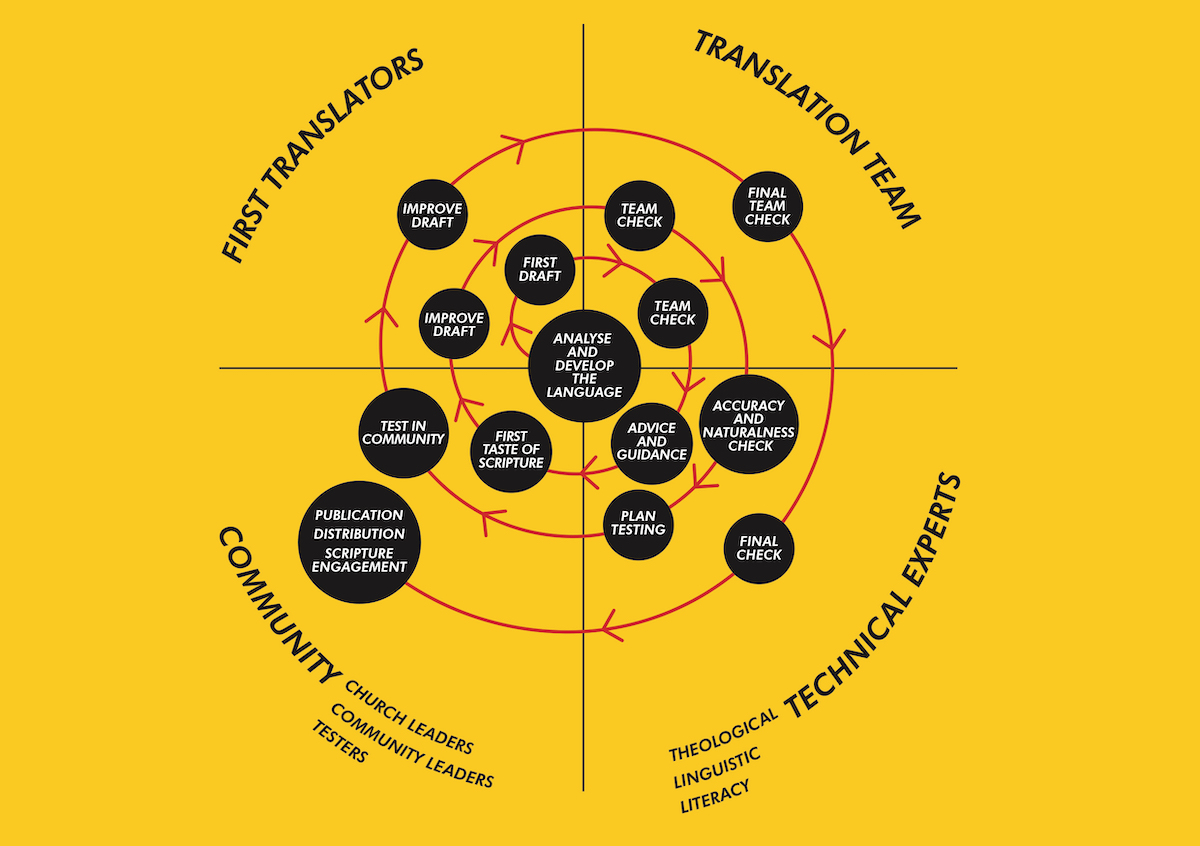
‘Translation is a team effort. The complex task of translating the Bible interweaves stages of drafting, checking, revising, more checking, and more revising, until an accurate, clear and natural translation is complete.’
David Rowbory, Bible translation consultant
David Rowbory is a translation consultant serving with Wycliffe. He teaches translation and works with Ashe translators in Nigeria, and has developed this spiral diagram to illustrate the stages of the Bible translation process, as well as who is involved at each stage:

David works in partnership with local Ashe translators. He says: ‘I want to help the translators understand more of the riches of their language and get better at understanding the Bible and putting it into the words of their own language.’

‘We hear them declaring the wonders of God in our own tongues!’
Acts 2:11
Translation consultants face intellectual, physical, emotional and spiritual challenges as they bring God’s word to people who have never heard or understood it.
The School of Language and Scripture provides training for translation roles. Successful participation in a translation project will require:
People involved in translation often learn the language and culture of a group by living with people and taking time to build relationships. They would normally serve in partnership with local speakers of the language.
Exegetes
Another important part of the translation process is exegetics – that is, analysing the meaning of the biblical text. Exegetes provide valuable support to Bible translators, enabling them to make sure the translation communicates the meaning well. Exegetical work is usually carried out through one of Wycliffe’s partner organisations, SIL International, and often in partnership with other national and international Bible translation organisations.
Applicants for exegetical work:
We would love to talk to you about serving God through translation – contact us here.
Header photo: Keliko translator Isaac Kenyi reads from the Keliko New Testament. Read about the launch of the Keliko New Testament here.